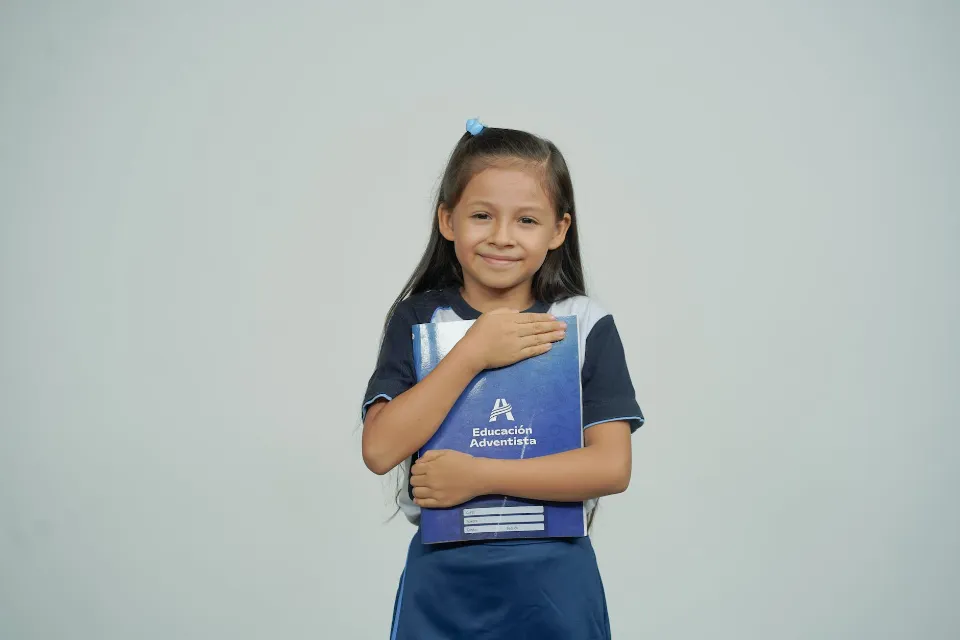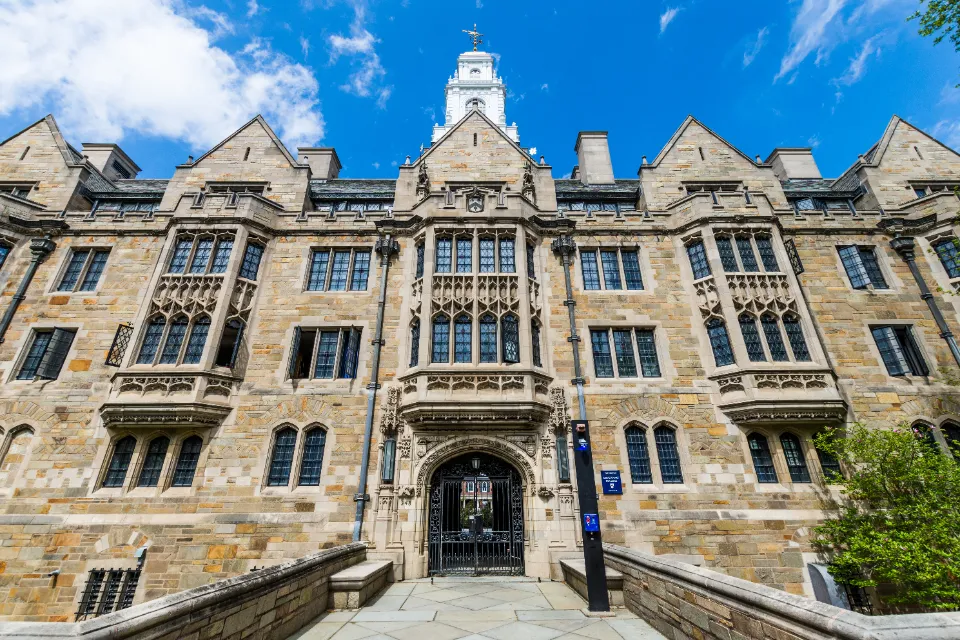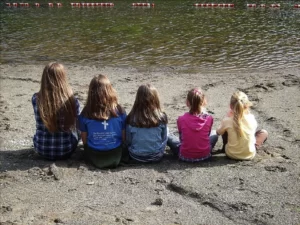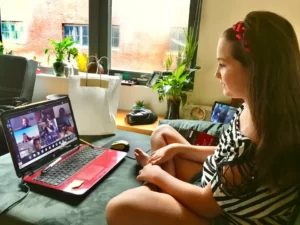
How to Apply to Private Schools? Tips & Steps
The admissions procedure may seem intimidating if you are thinking about sending your child to a private school. Here are some essential hints to make it simple for your kid to apply to private schools!
There are numerous factors that could influence a family’s decision to enroll their child in a private or independent school. However, unlike public schools, private schools demand applications, and the more prestigious the school, the more stringent the admissions procedure.
It’s critical to understand the application process and what the admissions committee will be looking for whether you’re applying for middle school, high school, or boarding school.
The time frame for completion varies from school to school, so make sure you ask about this early in the process, but the admission process typically flows as follows:
How to Apply to Private Schools?
Contact the Admission Office
Private schools frequently have one or more employees who guide parents through the admissions process and thoroughly assess each applicant for enrollment.
Fill out an inquiry form or an application to add your child’s name to the school’s admissions database. These are typically accessible online and leave a digital trail of your family’s enthusiasm for the institution.

Examine the website and keep track of important dates. Is an Open House scheduled? When is the application deadline? Are admission decisions made continuously? By scheduling important dates in advance, you can avoid delays caused by missing deadlines.
Schedule a Tour
The campus visit is the best way to figure out if a school is a good fit for your child. Open houses are held at schools, and most allow for private tours. Do not wait for an open house if the timing is crucial; arrange a private tour instead!
Ask for arrival instructions when booking the tour. Who do I contact when I arrive, and where do guests park? Some schools might require you to check in at a security office and show identification, while other schools might require you to meet the admissions officer at a particular location.
Should I bring my kid along for the tour? The most typical query is this one. The choice of the school, your situation, and the age of the child all play a role. For older kids, it can be useful to observe students switching classes, teacher interactions, the cafeteria, and other things to encourage participation and comfort.
It can be stressful to start at a new school, but experiencing it all firsthand can help reduce some of the stress that can result from the unknown.
Get Your Paperwork Together
Various documents will be needed by schools to finish your child’s admission file. A birth certificate or passport, as well as transcripts and report cards, are usually needed.
Be ready and aware of the admissions timeline to ensure a smooth process with no delays. Some schools might also require standardized testing and interviews.
Financials

The amount your family must pay in tuition to attend the school is typically listed on the website of the institution. Your top-choice school might offer financial aid, but keep in mind that a private institution’s first-time tuition payer is the family.
If you need financial assistance, talk to the admissions representative to find out how to apply and whether any scholarships are offered.
Related:
- How to Afford Private School on a Budget?
- How Do Middle-class Families Afford Private Schools?
- Why Are Private Schools So Expensive?
Decision Time: Accepted / Declined / Wait-list
Before making decisions, an Admission Committee or/and the Office of Admission carefully evaluates each applicant to ensure the child will succeed at their institution. Accepted indicates that a person is prepared to enroll!
The simple explanation for a declined decision is that the applicant pool included stronger candidates. Although your son or daughter is wonderful, it’s possible that they weren’t the right fit for that particular school.
Being wait-listed means the school wants to accept your child but needs to wait until a spot opens up in that particular grade.
Tips on Getting into Private School
If you’ve decided a private school education is right for your child and your family, keep these tips in mind to ensure the process goes smoothly and successfully:
Start Early
The majority of private school admissions deadlines fall in January or February of each year. However, the application process starts much earlier in the academic year! You’ll need at least six months, and ideally, a full year, to make sure your child has everything needed to apply, in addition to researching the best schools for him or her.
Understand Your Child’s Interests

It’s crucial to regularly check in with your child as you learn more and get ready to make sure he or she is enjoying the process.
- Are there extracurricular activities like sports or theater offered at these schools that your child would be interested in?
- Are the academics at the appropriate level?
- Which does your child prefer if the school offers both boarding and day school options?
Seek Out Additional Academic Enrichment
Schools will consider your child’s past academic performance regardless of the grade level for which you are applying. The ability of your child to articulate his or her favorite subjects (and why) will be even more crucial if you are applying to secondary schools. Additionally, admissions officers will undoubtedly assess his or her academic performance.
Evaluate Your Child’s Extracurricular Profile
Similar to how private school admissions committees take your child’s academic performance into account, they also give careful consideration to what your child does outside of the classroom. This includes athletics, the arts, and volunteer work.
While they are concerned with a student’s academic progress, they are most concerned with what your child will contribute to the school community.
Prepare for Standardized Testing
Similar to colleges, the majority of private schools evaluate their applicants using results from standardized tests in some capacity. The ISEE for elementary school and the SSAT for secondary school are the tests that are taken the most frequently.
Another justification for starting early is to give your child time to study independently or with a tutor in advance of these standardized tests.

Get Letters of Recommendation
The letters of support you will require for the application are another aspect of the private school application process that you should think about early on. The majority of private schools request two recommendations, frequently from math and English professors.
If you notify your child’s teachers well in advance, these letters will be stronger and more encouraging!
Prepare Your Child for the Personal Interview
There will almost certainly be a personal interview stage of the private school admissions process regardless of the grade level your child is applying for.
This is done so that the admissions committee can get to know your child and may take the form of a one-on-one meeting, observing a social interaction, being present in a class, or a combination of all three, depending on your child’s age.
Attend Schools’ Open Houses and Tours
Make sure you are aware of the dates and times for school tours and open houses so that you can make time in your schedule to attend. These events are essential to the application process.
While some schools may offer a few options, open houses typically take place in October and November and are not always available. Therefore, before fall arrives, it’s crucial to plan your visits.
Help Your Child Write Strong Essays
While the interview is unquestionably an important component of your child’s application, the admissions committee will also heavily rely on your child’s written responses to the essay questions to determine how well he or she will fit into the school community.

Students are prompted to consider their favorite subjects, the ways in which they have matured or grown, and the activities that are most meaningful to them in response to these questions.
Remember That You’re Applying, Too
Parents submitting applications for private schools occasionally discover to their surprise that this issue affects the entire family, not just their child. In fact, you’ll probably need to complete essays on your own and go to an interview, just like your kid.
These schools want to know that you’ll also be a welcoming and helpful member of their community.
Don’t Miss the Deadlines
Although it may seem obvious, keep in mind that there are numerous deadlines, in addition to the one in January or February, that must be met as part of the private school admissions procedure.
The majority of schools only hold a few open houses and have deadlines for scheduling tours and interviews, and the ISEE and SSAT only offer a select few test dates each year.
Conclusion: Apply to Private Schools
Always consider what will be the best fit for your child! Every admissions officer wants to see happy, successful kids, and this is what they strive for.
However, you can increase your child’s chances of getting into the school of their dreams by being aware of what admissions officers will be looking for and making sure you handle the application process successfully.
FAQs
What is the Best Age to Start Private School?
If there are no big concerns about academic ability, learning issues, or motivation, wait until your child is a little older and they have begun to discover their own interests, which usually comes at about age 10.
How Can I Get Admission to Private School in Canada?
Reading comprehension, synonyms, analogies, essay writing, and math skills are all measured on the admissions exams. The Secondary School Admission Test (SSAT), Canadian Achievement Test (CAT), and Independent School Entrance Examination (ISEE) are the three most popular standardized tests used for private school admission.
Can Foreigners Go to Public Schools in the US?
An international student may attend a SEVP-certified public secondary school (grades 9-12) with certain restrictions. For a maximum of 12 months, foreign students may attend a public high school. The student may not exceed this time limit while enrolled in any public high school.


